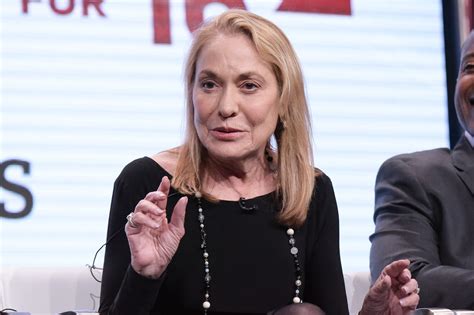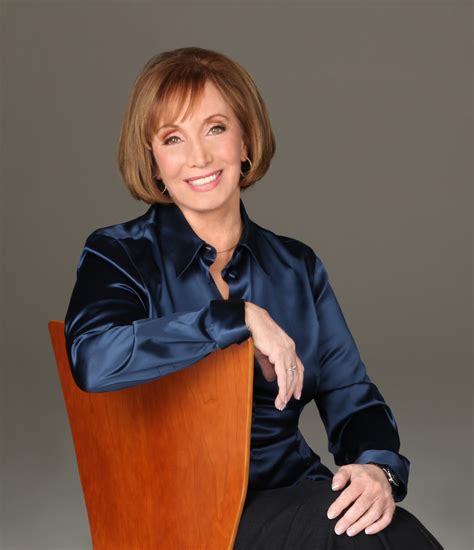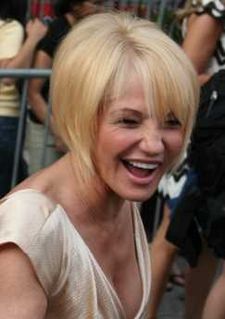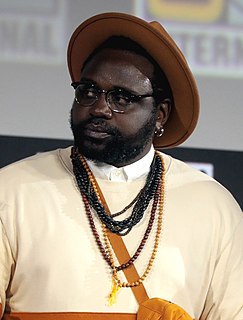A Quote by Susan Estrich
When a father climbs a dangerous mountain and dies, we mourn. When a mother does, we question her judgment. How could she?
Related Quotes
One thing I did have under my belt was, my mother lost her mother when she was 11. She mourned her mother her whole life and made my grandmother seem present even though I never met her. I couldn't imagine how my mom could go on but she did, she took care of us, she worked two jobs and had four children. She was such a good example of how to conduct oneself in a time of grief. When I lost my husband, I tried to model myself as much as I could on her.
Her [Eleanor Roosevelt] father was the love of her life. Her father always made her feel wanted, made her feel loved, where her mother made her feel, you know, unloved, judged harshly, never up to par. And she was her father's favorite, and her mother's unfavorite. So her father was the man that she went to for comfort in her imaginings.
I mean, her father was an alcoholic, and her mother was the suffering wife of a man who she could never predict what he would do, where he would be, who he would be. And it's sort of interesting because Eleanor Roosevelt never writes about her mother's agony. She only writes about her father's agony. But her whole life is dedicated to making it better for people in the kind of need and pain and anguish that her mother was in.
How could you miss it? Just the sound of her voice makes my chest feel tight, my face gets hot and my mouth goes dry whenever she's near. It's getting so bad, all I have to do is see her and I'm already thinking, 'What does she want? What can I do for her?' She's got some power over me, there's no question, and what else could it be? ~Razo
The adolescent does not develop her identity and individuality by moving outside her family. She is not triggered by some magic unconscious dynamic whereby she rejects her family in favour of her peers or of a larger society.... She continues to develop in relation to her parents. Her mother continues to have more influence over her than either her father or her friends.
I came across an old story of mine that I'd written a decade ago. The main joke of the story is that a mother is telling her children about how she met their father online. The majority of memories the mother has all have to do with really funny links he sent her, a music download that she loved, etc. - and because of these superficial details she fell in love with the father. Reading it today, it's hardly a dystopian story; it's simply a realistic story about how people actually meet.
Then, there's the modern mother-in-law. In her mid 40s, she is the compact car of her breed: efficient, trim, attractive and in harmony with her times. She's pretty stiff competition for the plain young matron who's overweight and under-financed. If there is going to be friction in this relationship, it could start from envy and resentment in the younger woman. But Father Time is on her side, even if Mother Nature played her a dirty trick
When my daughter went to school, her last name was mine. The school insisted that her father's name be added to hers, not her mother's. The fact that the mother kept her in her womb for nine months is forgotten. Women don't have an identity. She has her father's name today and will have her husband's tomorrow.
Papa, do you like my new friend?" Frances Catherine asked when they were halfway across the field. "I surely do." "Can I keep her?" "For the love of...No, you can't keep her. She isn't a puppy. You can be her friend, though," he hastily added before his daughter could argue with him. "Forever, papa?" She 'd asked her father that question, but Judith answered her. "Forever," she shyly whispered. Frances Catherine reached across her father's chest to take hold of Judith's hand. "Forever," she pledged.
It's right around this time that her Grandmother Hall dies. And Eleanor Roosevelt is responsible for making all the funeral arrangements. And there are a couple of things that she really understands, as she contemplates her grandmother's life and makes the funeral arrangements. One, she's really talented, an organizational woman. She knows how to do things. She begins to compare her life to her grandmother's life. And it's very clear to her that being a devoted wife and a devoted mother is not enough.
Well, when Eleanor Roosevelt's mother dies, she goes to live with her Grandmother Hall. And her Grandmother Hall is in mourning. She's in widow's weeds. She's in her 50s, but appears very old. And she's exhausted from raising rather out-of-control children. Her favorite daughter, Anna, has died (Eleanor's mother), and she has living at home two other sons, Vallie and Eddie. And they are incredible sportsmen, incredible drinkers, out-of-control alcoholics.
Hazel has to realize that her mom was wrong when she said, “I won’t be a mother anymore.” The truth is, after Hazel dies (assuming she dies), her mom will still be her mom, just as my grandmother is still my grandmother even though she has died. As long as either person is still alive, that relationship survives. (It changes, but it survives.)
She had always told herself that she did hti job because she wanted to help others; afterall, hadn't Maurice told her once that the most important question any individual could ask was, "How might I serve?" If her response to that question had been pure, surely she would have coninued with the calling to be a nurse.... But that role hadn't been quite enough for her. She would have missed the excitement, the thrill when she embarked on the work of collecting clues to support a case.
I'm Method trained. How is this character like me? What does she think of her mother? What does her mother think of her? It's like construction, and then, yes, you hope you're talented and that the universe aligns and captures the kind of laborer's work you've done and whatever else sprinkles down on you, and it's all caught on film or onstage.
My father was retired military, and my mother was an educator. She was incredibly creative. I used to love going to her school during the summer and helping her decorate her classroom. I would draw Mickey Mouse, Donald Duck. She was a sixth grade teacher. She and my father are the ones that got me into my love of music.






























